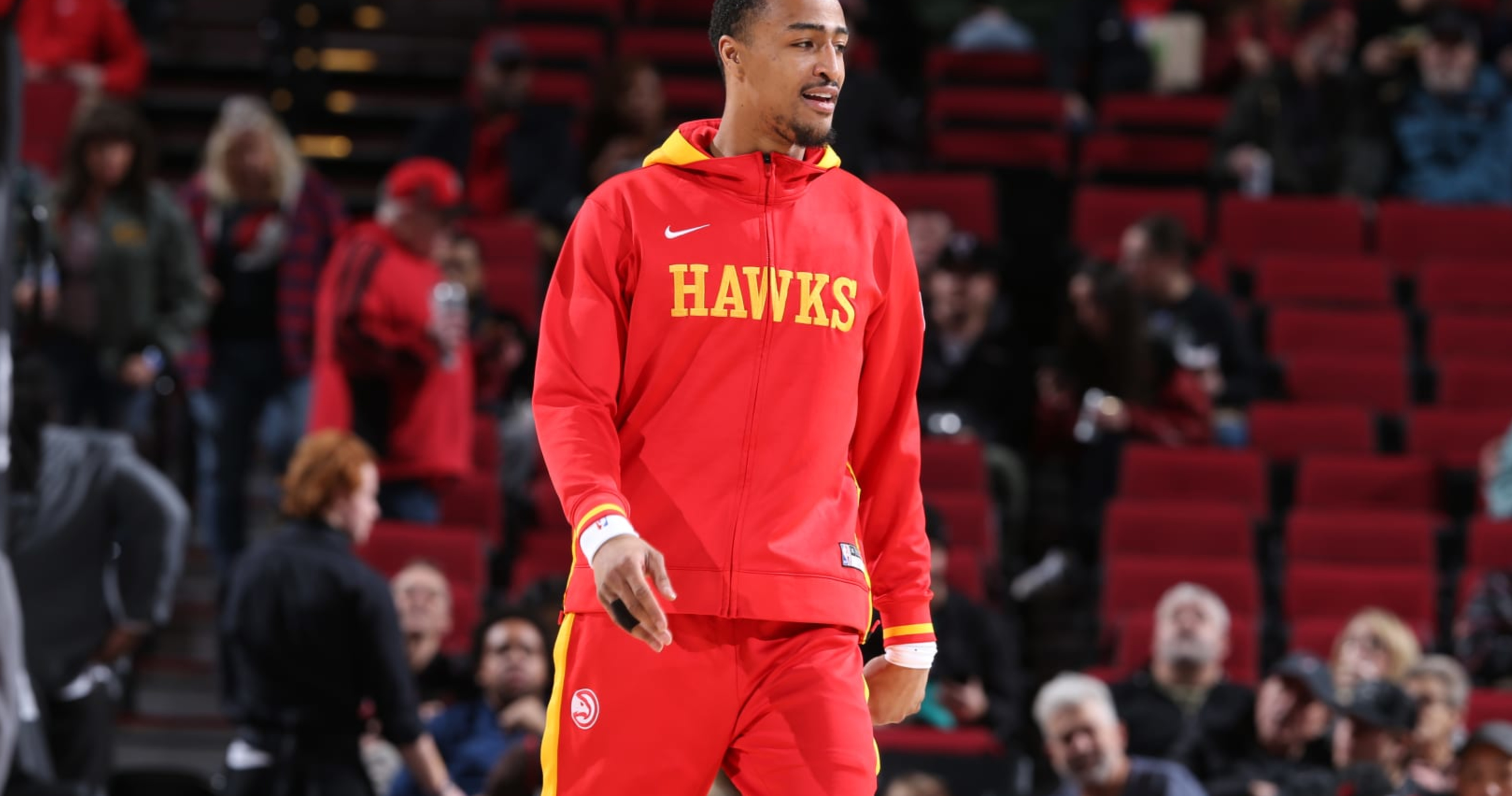Report: John Collins Traded to Jazz; Hawks Receive Rudy Gay, 2nd-Round Draft Pick

After being the subject of trade speculation for years, Atlanta Hawks forward John Collins is finally on the move.
The Hawks are finalizing a trade sending Collins to the Utah Jazz for Rudy Gay and a future second-round draft pick, according to ESPN’s Adrian Wojnarowski.
Brian Windhorst of ESPN reported during the Hoop Collective live draft show the front office was “under a mandate” to get under the luxury tax.
As the offseason started in earnest, the 25-year-old found himself in a familiar position. Yahoo Sports’ Jake Fischer reported Atlanta “will continue to explore trade scenarios” with him at the center.
Collins has spent most of his Hawks career in the middle of hypothetical deals, and signing his five-year, $125 million extension in 2021 did little to quell the speculation.
“Obviously, that stuff is draining and not something you necessarily have to deal with,” he told The Athletic’s Sam Amick in January. “But it’s part of the business, so I try to just not really think about it, honestly. I try to go out there and play the best basketball I can. But not to say that I don’t know, but I sort of just do know, right?”
Sooner or later the Hawks had to actually move Collins. It became clear over time he simply wasn’t an ideal fit with this roster, and his value was steadily diminishing.
The 6’9″ forward is coming off one of his worst years in 2022-23. He averaged 13.1 points and 6.5 rebounds, both of which were his lowest since his rookie campaign. He also shot 50.8 percent overall and 29.2 percent from beyond the arc, both of which were well below his career averages (55.1 and 35.6).
Collins didn’t perform any better in the playoffs, either. He scored 11.3 points per game as Atlanta lost to the Boston Celtics in the first round.
Because of his age, you can still talk yourself into the 2017 first-round pick having some untapped potential. At the very least, he might see his production improve if he’s utilized in a different role.
The Step Back’s Ian Levy wrote in January how the Hawks were getting Collins fewer looks out of the pick-and-roll because they needed his shooting to help balance the lack of floor-spacing from Clint Capela and Onyeka Okongwu.
Collins’ 33.9 percent three-point attempt rate was his highest ever, per Basketball Reference. He also shot 102 threes from the left and right corners, per NBA.com, which was up from 62 in 2021-22.
“If you put Collins on a roster with a center who could protect the rim and space the floor—say Myles Turner and the Pacers, Kristaps Porziņģis and the Wizards, the Grizzlies and Jaren Jackson Jr.—he’d be freer to get back into the role that made him so effective earlier in his career, wreaking havoc inside the arc with quickness and explosiveness,” Levy wrote.
The Hawks were between a rock and a hard place with Collins.
Shedding the remainder of his contract gives the franchise some financial flexibility, which is important since Dejounte Murray is due to hit free agency in 2024 and figures to be paid handsomely. Atlanta figured to get something of worth back from this swap as well.
But it’s hard to see how Atlanta winds up a winner from the trade because it’s a clear case of selling low. Collins’ value is at its nadir.
Breaking even is likely the best the Hawks can do, and they will look like they got fleeced if Collins’ change of scenery triggers a resurgence.
After exceeding expectations and winning 37 games, Utah is continuing to forge ahead rather than lean further into a rebuild. Collins is certainly an upgrade over Kelly Olynyk, who split his time between power forward and center this past year.
However, the Jazz might run into the same problems the Hawks did since Walker Kessler is a more traditional big man in the mold of Capela and Okongwu. Collin Sexton isn’t the kind of natural playmaker who can easily maximize Collins’ value off the ball, either.
Nonetheless, Utah clearly has a plan for him moving forward after executing this trade.